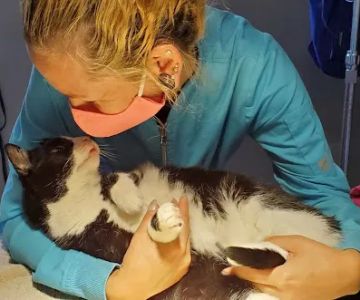Caring for a Pet with Hypothyroidism: A Comprehensive Guide
Hypothyroidism is a common condition that affects many pets, particularly dogs. As a pet owner, it’s essential to understand how to properly care for a pet with hypothyroidism. In this article, I will share important information, tips, and my own personal experiences to help you provide the best care for your furry friend. Whether you're dealing with a newly diagnosed pet or just looking to learn more about hypothyroidism in pets, this guide will offer valuable insights.
Understanding Hypothyroidism in Pets
Hypothyroidism occurs when a pet's thyroid gland doesn't produce enough thyroid hormone. This hormone is crucial for regulating metabolism, energy levels, and overall growth. When the thyroid is underactive, it can lead to a number of symptoms, including weight gain, lethargy, hair loss, and skin problems.
The condition is more common in certain breeds, such as Golden Retrievers, Doberman Pinschers, and Cocker Spaniels, but any pet can develop hypothyroidism. Recognizing the symptoms early is key to managing the disease effectively and ensuring your pet lives a happy and healthy life.

197 Defense Hwy Suite 101, Annapolis, MD 21401, USA
See DetailsSigns and Symptoms of Hypothyroidism in Pets
Recognizing the signs of hypothyroidism in your pet is the first step toward effective treatment. Common symptoms include:
- Weight gain despite a normal or reduced appetite
- Fatigue or lethargy
- Thinning hair or hair loss, especially around the tail and hindquarters
- Dry, flaky skin
- Cold intolerance
- Behavior changes, such as increased irritability or depression
If you notice any of these symptoms in your pet, it's important to consult with a veterinarian. A blood test can confirm whether your pet has hypothyroidism, and your vet can recommend appropriate treatment options.
Managing Hypothyroidism in Pets
Once diagnosed, hypothyroidism is typically treated with thyroid hormone replacement therapy. The most common medication is synthetic thyroid hormone, which is administered orally. It’s crucial to follow the prescribed dosage and schedule, as the correct hormone levels will help your pet’s metabolism return to normal.
In addition to medication, lifestyle changes may be necessary. Here are some tips I’ve found helpful in managing my pet’s hypothyroidism:
- Regular Vet Checkups: Regular visits to the vet are essential to monitor hormone levels and ensure the medication is working properly. Adjustments to the dosage may be required as your pet's needs change.
- Consistent Exercise: While hypothyroidism can cause fatigue, regular low-impact exercise is important to maintain healthy weight and energy levels. Short walks or playtime can be a good way to get your pet moving without overexerting them.
- Balanced Diet: Feeding your pet a balanced, high-quality diet is crucial. Some pets with hypothyroidism may have difficulty maintaining a healthy weight, so portion control and a weight-management formula may be necessary.
- Monitor Skin and Coat Health: Many pets with hypothyroidism experience skin issues, including dryness and hair loss. Regular grooming, moisturizing shampoos, and omega-3 supplements can help improve coat health and skin elasticity.
Personal Experience: How I Managed My Dog’s Hypothyroidism
When I first noticed that my dog, Daisy, was becoming more lethargic and gaining weight despite her usual eating habits, I was concerned. After a visit to the vet, we discovered that Daisy had hypothyroidism. At first, I was overwhelmed by the thought of managing her condition. However, after starting her on thyroid medication and making some lifestyle adjustments, I began to see improvements in her energy levels and overall health.
It took a few months of trial and error with her medication dosage, but with consistent vet visits and attention to her diet and exercise, Daisy is now thriving. She’s back to her playful self, and her coat looks healthier than ever. My experience with Daisy has taught me the importance of early diagnosis and proactive care when managing hypothyroidism in pets.
Conclusion
Caring for a pet with hypothyroidism can seem daunting at first, but with the right treatment and lifestyle adjustments, your pet can lead a healthy and happy life. By recognizing the symptoms early, working closely with your vet, and making the necessary changes at home, you can help your pet feel better and live their best life. If you're ever unsure about your pet's health, don't hesitate to consult with a professional for guidance.
At Hidden Brook Veterinary, we are dedicated to providing the best care for your pets. If your pet has been diagnosed with hypothyroidism or any other condition, feel free to reach out to us for expert advice and personalized care.










